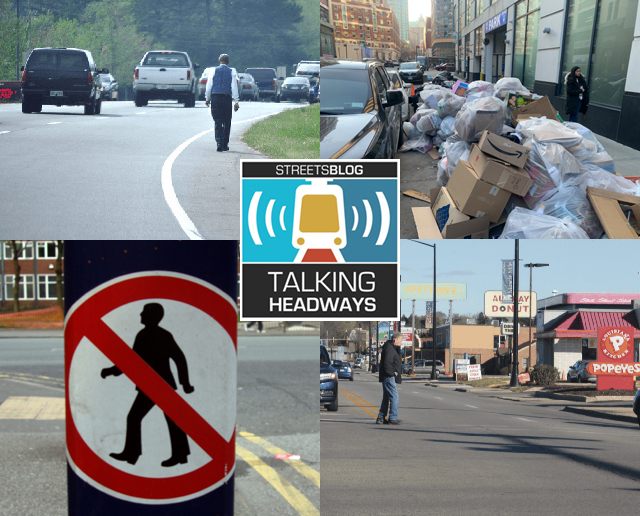This week, Jonathon Stalls, author of "Walk: Slow Down, Wake Up, and Connect at 1-3 Miles Per Hour," talks about his work on social media with Pedestrian Dignity and his walk across the United States in 2010.
For an edited transcript, see below the audio player. For a full, unedited transcript, click here.
Jeff Wood: Well, [nature] creates safety. That was another theme that permeated the book, but also [the theme of] not being safe. I mean, you almost get run over by a truck, the experiences that you have on your Tik Tok channel, those types of things. I’m wondering how safe you feel on walks generally; in nature, it’s easy to be safe because you’re among the trees and everything else, but on roads when you’re interacting with vehicles and two-ton giants, how often do you feel safe?
Jonathon Stalls: That’s a great question. The safety piece is so huge and I’m always thinking about being a white man in the world and being of any other race or gender or orientation or someone with disability of various kinds. Moving through safety is just this huge, important, complicated, rough edge. Especially thinking about the built environment and car-centric built environment in terms of how that edge just continues to be rough [and] to be really disconnected from humble human frames moving through space and time. I had never done any urban-planning study, public-health study, engineering study prior to this walk.
I had a mixed experience growing up, both in cars and on transit, but I just hadn’t had a heavy lens on pedestrian mobility. I don’t know how many degrees of lived experience, education, related to, and this connects to the campaign that I work on a lot, pedestrian dignity, the dignity of a human body moving from A to B, the safety elements were often daily, hard, complicated, outrageous in so many ways. I mean, literally outrageous, Jeff! It was like just going into one town, city, suburb after the other, just hit, cut and paste on how outrageous the environments are against a pedestrian, unless you’re hanging out just on a main street, but even those main streets can be really rough.
If you’re hanging out in an urban core, you get a little closer, but even those urban cores can be so disconnected [when one is] thinking about public restrooms and access to water and seating and full accessibility for all mobility users. I’m somebody that carries energy in my body, as you can tell, I get loud and I grunt. So... all the time on this walk, [I] very much [experienced] the beauty, as we talked about — the trees and the sky and the people in the flow — but then obviously the slam contrast of literally being bypassed, unseen, sprayed, almost ran over an uncountable number of times.






